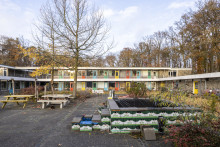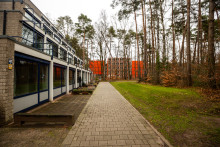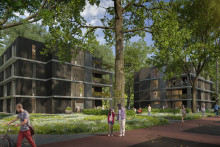It concerns a total of 24 residential complexes, from Calslaan to Witbreuksweg, which De Veste wants to have thoroughly renovated. This amounts to 1100 to 1200 housing units, roughly half the number that the housing organisation rents out on campus. Relatively newer residential complexes such as Sky and Box fall outside the scope of the project.
The renovations will take place from 2024 to 2030, to make the homes 'up-to-date and future-proof in terms of sustainability', says De Veste manager Richard Ditzel, who assures that current residents should not expect an increase in rental costs as a result. ‘That was agreed upon with the central residents’ council (CBR, ed.) last year.’
Tender
According to Ditzel, the plans are currently in a very early stage. ‘We are now in the tendering phase, in which we are looking for a construction team with several contractors. It is a large and complex task, for which the schedule is yet to be drawn up. Moreover, we want to coordinate the implementation of the plans in good collaboration with the central residents’ council and the residents themselves.’
A rough outline of the plans is ready, according to Ditzel. ‘The homes need to stop using gas, be better insulated and we are looking at generating sustainable energy. The interior of the homes will also be renovated. Think of new kitchens and bathrooms. We also have plans for the construction of new residencies.’
Not habitable
According to Ditzel, such a thorough renovation does mean that it ‘interferes with the private lives of residents'. ‘Of course, we will not renovate all homes at once, instead, we will do so in phases. But the renovation is so radical that a residential unit is not habitable for a few weeks to a few months when the renovation is underway.’
That is why De Veste is looking at possibilities for so-called ‘changeable housing’ on campus. ‘These are also plans that still need to be worked out further. In any case, we try to provide as much living comfort as possible in such a situation and will inform the residents well about what they can expect’, Ditzel says.






